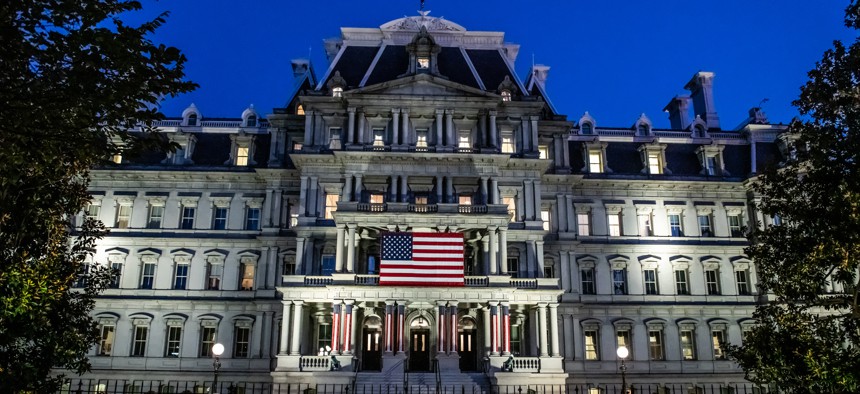Former officials sound off on the challenges of managing through a shutdown

Melodie Yvonne/Getty Images
“The big thing that happens..is lots of lawyers weighing in on what activities are actually exempt," one former official said.
What stops and what keeps going in government during a lapse in appropriations? The short answer is that it often depends, former Office of Management and Budget executives said Wednesday.
The question is relevant now especially as lawmakers work to avert a potential shutdown at the end of the month.
If a shutdown does happen, how that affects different government employees and programs depends on a range of factors, said Margaret Weichert, former acting Office of Personnel Management director and former deputy director for management at OMB during the Trump administration, during a Wednesday event at the Bipartisan Policy Center.
In terms of specific government employees and programs, there’s the question of whether something is funded by direct appropriations in the first place. OPM, for example, has some funding through fees it gets from other agencies as well as trust funds in addition to getting money annually from Congress, said Weichert.
The impact of a funding lapse is also highly dictated by how long the lapse lasts.
“If it's three days, it's rare that it's going to have a major impact,” she said. “If it goes two weeks, it starts affecting people's paychecks. If it goes longer than two weeks, it really starts affecting all kinds of things with these kind of trickle down impacts.”
“There are a lot of things where if one agency is paying another agency, there could be money that could be spent for a period of time, but once that money is spent down and there’s no more money in that bucket, then employees will be affected,” she said. “This is where it gets super complicated. We use the term ‘color of money’ that really talks about how things are paid for and the legal definitions around things are paid for really affect what can be spent.”
The “main difference” across administrations is how they interpret the Antideficiency Act, said Weichert. It’s a law that “generally bars the obligation of funds in the absence of appropriations,” according to the Congressional Research Service.
“The big thing that happens at OMB is lots of lawyers weighing in on what activities are actually exempt, what are excepted activities and what are the legal ramifications of how you handle that,” Weichert said of the leadup to funding lapses. The question of how different feds are funded or whether they are exempt under that law becomes important.
Some administrations will say “if it isn’t explicitly allowed or it hasn’t explicitly been done before, we won't do that,” she said of what activities stop or continue during shutdowns. During the Trump administration, the strategy of funding government work that is usually stopped during shutdowns later resulted in the Government Accountability Office, which issues legal decisions about agency compliance with the law, saying that some agencies had violated that law, as GovExec has reported.
Exactly how each agency would approach a shutdown now during this administration isn’t exactly clear — few large federal agencies have posted updated contingency plans for 2023. The White House warned on Wednesday that a shutdown would have “damaging consequences across the country,” pointing to furloughs of employees doing food safety inspections and more.
Michael Linden, former executive associate director at OMB in the Biden administration, said shutdown scenarios present the executive branch with “impossible choices.”
“Sometimes it’s in the eye of the beholder, and an administration can choose to take a very broad view of that and try to make a shutdown as painless as possible, [or] an administration can take the letter of the law and say, ‘Look we don't have the money. We can’t do it,’” he said. “I think the key here is we should avoid shutdowns, and people should not be threatening shutdowns and putting the administration in that position to make those kinds of decisions.”
NEXT STORY: Last CIO-SP4 protest resolved


